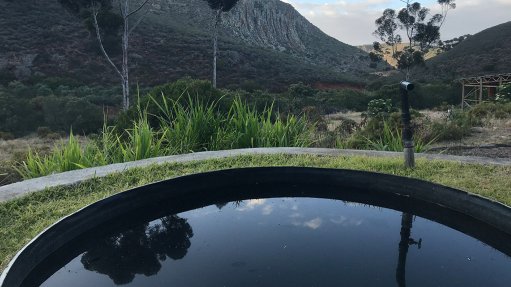
WATER SOURCE AREA This year, Journey of Water took place in the Riversonderend catchment which falls into the Boland water source area
Freshwater scarcity in South Africa is a topical issue which is why nongovernmental organisation the World Wide Fund for Nature South Africa (WWF-SA) stages a Journey of Water every two years to highlight the importance of protecting the country’s strategic water source areas.
WWF’s Journey of Water is a physical and intellectual journey for a group of influential South Africans who learn about the biggest challenges facing water security in South Africa.
This year, the fourth Journey of Water took place from March 11 to 13, in the Riversonderend catchment which falls into the Boland water source area and is a critical source of water for Cape Town through the Theewaterskloof Dam.
Participants included celebrities, corporate partners and a large media contingent. While hiking, paddling, biking and ziplining through the catchment area, they were encouraged to share their experiences and insights with their respective audiences.
The aim of the Journey of Water, which has been replicated by WWF offices in Zambia, Brazil and Malaysia, is to reconnect water users with their water source areas and to underscore the message that water does not come from a tap, explains WWF freshwater programmes senior manager Christine Colvin.
“The campaign highlights the fact that our future water security requires us to think and act differently towards water. “There can no longer be any doubt that the relationship between people and the planet is dangerously unbalanced, with the destabilisation of the climate and the loss of nature already causing unprecedented changes to the natural systems on which all life depends.”
She adds that the location for the Journey of Water 2019 was specifically chosen in the wake of the extreme drought that affected Cape Town last year and because Riversonderend is where WWF-SA has done extensive catchment restoration work.
One of the focuses of this year’s “journey” was how much freshwater flow is lost owing to alien invasive vegetation. Another was to showcase how many opportunities there are to develop small enterprises that have yet to be fully realised.
“There is potential for a ‘catchment economy’ to provide jobs for local communities – if the flow of investment back to the catchment can be ensured. Such jobs include forestry, fire disaster management, alien plant clearing and growing indigenous plants to actively restore some of the country’s damaged rivers,” Colvin explains.
These jobs are part of a “regenerative economy” that builds value beyond water services, including rebuilding catchments that have been neglected and, in some cases, invaded by alien plants and damaged by wildfires.